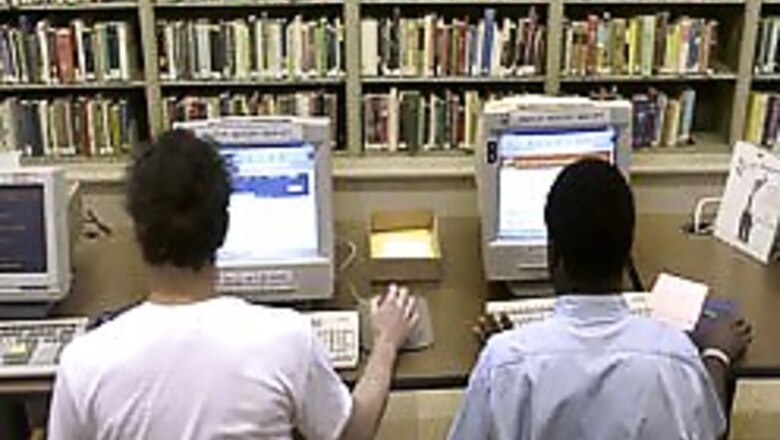
views
London: In the latest example of growing online interaction between Britain and India, British pupils are paying nearly £10 an hour for online tuition on various subjects from teachers based in India.
More than 3,000 pupils here have been receiving such one-to-one tuition using Internet telephony from TutorVista, a company based in Bangalore. It reportedly employs teachers who work in shifts.
While such services have been welcomed by many pupils and their parents, there is growing concern among British education experts on university students buying essays and course assignments from online sites, some of them also based in India.
According to investigation by Robert Clarke and Thomas Lancaster of the University of Central England, Internet cheating and selling tailored essays has assumed the dimensions of international trade. They call the trend "contract cheating".
Many online sites outsource the essays required to experts who are then paid a portion of the fee paid to the site by the students. Reports say that many such experts are based in India, particularly in the area of information technology.
According to the Times Higher Education Supplement (THES), TutorVista will begin trials in September with some state schools in England which will pay to give pupils extra help in preparing for national tests, GCSEs and A-levels outside lesson time.
"We are not trying to replace the classroom or classroom teachers. The social aspect of going to school is important, and teachers in Britain work very hard," owner of TutorVista, Krishnan Ganesh told THES.
"But, unfortunately, the teaching that pupils receive is not always personalised. If you want to get good at tennis you need personal coaching, one on one, and it is the same with education. There are certain limits to what can be taught online - drama, for instance, would be difficult. But English, Maths and science lessons work extremely well," Ganesh added.
The report said that pupils book sessions in advance, then log on to a website where they share essays and other work with their tutors. They are able to chat by using voice-over-Internet systems. The pupils and teachers can also draw on a simulated whiteboard or load up prepared work and animations.
The company reportedly has around 6,000 pupil-subscribers in the US. It has 60 tutors for the US and 20 for Britain, who are trained in the differences between the countries' curriculum.
The National Union of Teachers said it did not see such companies as a threat to British teachers, as only a tiny proportion of the 7.5 million English state school pupils had so far expressed an interest.
"There's a difference between ringing a helpline to get a phone number and getting support with your education," a spokeswoman said.
"Whether it is in India or Blackpool makes no difference to the quality of education that can be provided by a graduate in a call centre, compared to face-to-face help from a teacher - although there are questions about the cultural awareness of Britain that teachers in India would have," the spokeswoman added.




















Comments
0 comment